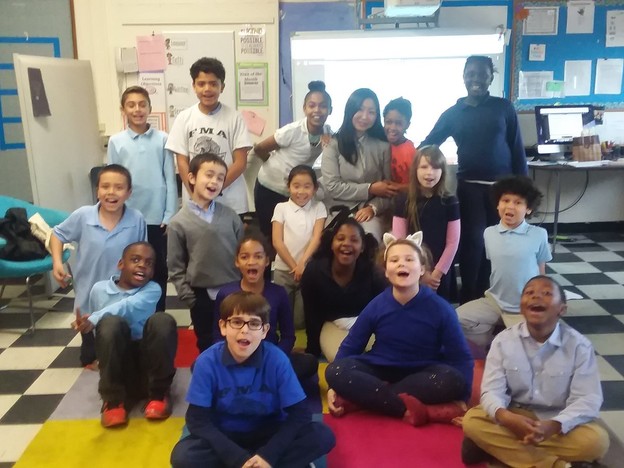The children and poetry

I visited Cambridge Elementary School earlier this year upon the invitation to give a poetry reading to a group of very sweet and deeply sensible young children in the fourth grade. After I read two poems, the students let out small sighs and when asked by their teacher Ms. Martin how they felt, exclaimed “That was so beau-tiful! Poetry makes me so calm! I love poetry!”
It may not have been the first time they heard poetry before. Poetry is seemingly everywhere. On billboards, on television screens, on radio broadcasts. But it may have been the first time they heard a poem read to them. What’s significant, and I don’t mean to suggest that these children loved my poetry in particular, is the sense that the rhythm, the terseness, the enjambments of poetry, offered a type of language and experience. It is true that my first book Love, Robot is a science fictional tale of a world where robots and humans fall in and out of love. And it is true that children tend to like robots, unicorns, and magical things that push the boundaries of the world in which we believe is true. But I think it reminded me of one of the first serious conversations I had on poetry. I remember being outside, in a class held somewhere out on a sunny southern Californian lawn, and I remember remarking,“I like how poetry slows me down.”
“Poetry makes me feel calm!” The class at Cambridge Elementary was quite racially diverse — something my partner’s child enjoyed being one of the many Black students in the room — and its students were a thoughtful group, that somehow, at the young ages of eight and nine years old, knew poetry, viscerally.
Reading poetry certainly does slow one down. You must gaze, pay attention to words, consider the pacing; it is an attentiveness not usually asked for in our contemporary world. It is the opposite of eating with your phones. It is the opposite. Is this what Williams saw when he wrote about this everyday with such precision and minimalism that the poem was able to encapsulate reality into closely tended lines that make up poems? A block of words, no. Poetry as a process of automation through language, and in this way, the poem as “small (or large).”
Automated Poetics